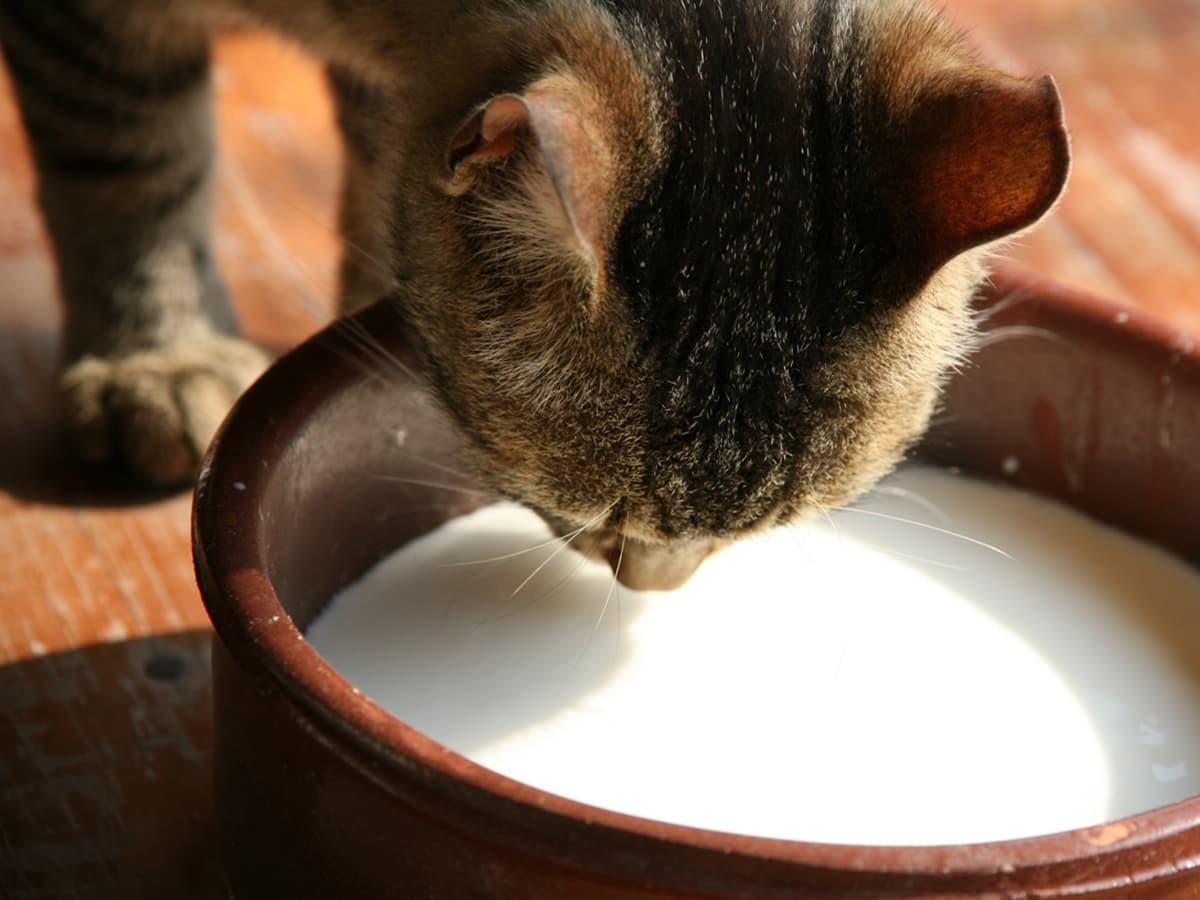Milk is not good for cats! Yes, you read that right. This may be a shocker to most people, but adult cats are lactose intolerant! As a pet parent, it is important to understand why adult cats should not be given milk, what happens when your adult cat drinks milk, and what to do if your cat has drank milk.
What is Lactose Intolerance?
Lactose is the sugar found in milk and milk-related products. Lactose intolerance is the lack of ability to digest these sugars. It happens when the small intestine cannot produce enough of an enzyme called ‘lactase’, which helps break down and digest lactose.
Lactose intolerance causes discomfort in the stomach when milk or milk by-products are consumed. It is not a serious condition and most people don't notice many symptoms. That being said over 65% of the human population has lactose malabsorption, so there's a good chance you may have it too!
Are all Cats Lactose Intolerant?
In a way, yes, all adult cats are lactose intolerant. Kittens that are still nursing can digest milk because they produce lactase, the enzyme that breaks down the lactose in milk. Adult cats need a meat-based diet to meet their nutritional needs and don't need milk anymore, so their bodies don’t find it necessary to produce the enzyme.
What Happens When a Cat Drinks Milk?
When an adult cat drinks milk, their small intestines are unable to break down the lactose, so it enters the large intestine unchanged. This causes gastrointestinal discomfort for the cat and leads to symptoms like -
Painful gas
Flatulence
Abdominal Pain
Diarrhea
Constipation
Increased heart rate
Dry gums
Increased thirst
These symptoms usually show up 8-12 hours after the cat drinks milk.
Why are Cats Lactose Intolerant?
The one-word answer is – genes. There is no external cause for lactose intolerance in cats. It is purely because of their genetics that they don't produce lactose in their small intestine. The severity may however vary from breed to breed as some breeds can be more intolerant to milk than others.
Diagnosing Lactose Intolerance in Cats
If any of these symptoms go on for a prolonged amount of time, it may be time to call your vet and schedule an appointment. Your vet may conduct a few physical examinations to get a better understanding of the severity of your cat's reaction.
These exams may include determining if your cat is dehydrated, checking how long it takes for the skin around your cat's neck to return to position after being gently pulled upward, or checking to see how long it takes for your cat's gum to regain their normal color after being pressed.
The symptoms of lactose intolerance can also be caused by other medical conditions like inflammatory bowel disease, gastrointestinal cancer, or a bacterial infection. Fecal examination, blood tests, and/or abdominal x-ray may be done to help your vet determine the root cause of your pet's symptoms.
Treatment of Lactose Intolerance in Cats
When it comes to lactose intolerance, prevention is the best cure. The best treatment is simply eliminating all dairy products from your cat’s diet. But if your cat has already ingested some milk while you were busy in a meeting or getting ready to run a few errands then you will want to make sure that your cat at least stays hydrated. The best way to do this is to take your cat to the vet to receive intravenous fluids.
Can My Cat Drink Vegan Milk?
Unsweetened almond milk or oat milk are a safer option for your cat because they do not contain as much lactose as dairy milk. Having said that, they might still contain a small amount. It is important to read the label before giving any milk to your cat.
One more thing to remember is that cats are carnivorous. Meat should make up the majority of their diet. These types of milk should only be given to a cat as an occasional treat and only in very small quantities. While they contain little to no lactose, they can still contain fats that can lead to weight gain if given to a cat too often.
Conclusion
Milk is not great for adult cats, and while vegan options have less lactose, they come with other risks. Milk also doesn’t add any nutritional value to your cat's diet. Once cats are 8 weeks old, they stop needing milk from their mothers and instead survive on their own. So, kitties older than 8 weeks old should not be given any milk. It is always better to just stick to cat food and fresh water for your cat.

I've had the privilege of immersing myself in the realm of pet safety. As the owner of an energetic mini golden doodle, I know just how stressful being a pet owner can be. I am dedicated to ensuring our beloved pets enjoy a life brimming with good health.
"Lactose Intolerance," My Cleveland Clinic, https://my.clevelandclinic.org/health/diseases/7317-lactose-intolerance, accessed Jan. 23, 2024.
"Lactose Intolerance in Cats," Wag Walking, https://wagwalking.com/cat/condition/lactose-intolerance, Aug. 20, 2021.
"Can Cats Drink Milk?" Paoli Vet Care, https://www.paolivet.com/health/can-cats-drink-milk, Aug. 9, 2022.
The information presented in this article is for educational and informational purposes only and does not constitute or substitute for the advice of your veterinarian.












